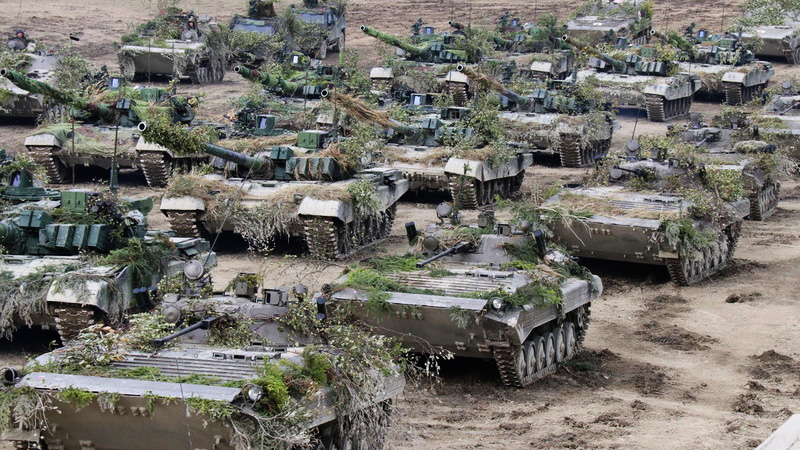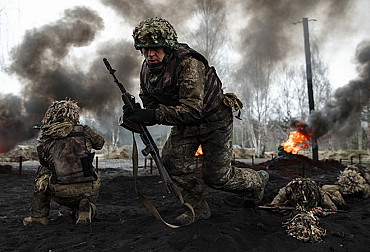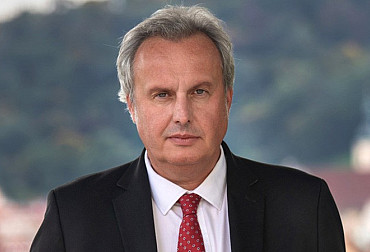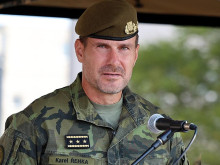Jana Černochová: We owe the Army a clear financial outlook for at least five years ahead
What has succeeded and what has failed in this term of office? What do the Ministry of Defense and the Army need for more effective modernisation? We asked Jana Černochová (ODS), the chairwoman of the Defence Committee, not only about this at the end of the term of the Chamber of Deputies.

Picture: Jana Černochová (ODS) | Jana Černochová / CC BY-NC-ND
Madam Chairwoman, looking back at this term of office through the eyes of the Defence Committee, what shape do you think the Czech Army is in?
Despite budget increases, we still have a lot of obsolete equipment, as well as immovable infrastructure. It is a pity that we have not used the years of growth to invest more massively in modernisation, like, for example, Hungary, Poland and Slovakia. So, we have an army that is in good shape only thanks to people who have excellent training, have experience from, for example, foreign deployments and are able to do wonders to keep obsolete equipment running. However, modernisation is still half-hearted, and the cuts in the money that the Army was supposed to get and will get have come back on the table. This only widens the gap between the funding the Army is supposed to receive and what it has planned in conceptual documents such as the Concept for the Build-up of the Czech Army 2030. I will paraphrase one of General Opata's statements: we can go to war even on old IFVs, but the question is in what condition we will return.
Let's focus on long-term projects for the modernisation of the Army. In your opinion, what has been achieved and what do we owe to the armed forces?
First of all, we owe the Armed Forces a clear financial outlook for at least five years ahead. Whether in the form of statutory expenditure or otherwise. But above all, somehow. This haggling from one year to the next, when budget projections can change significantly, is wrong and adversely affects any planning. Then there should be acquisition legislation, be it laws or sub-legislative and internal ministerial standards, that is not an iron ball at the foot and allows for greater flexibility while maintaining maximum transparency.
Yet I have to ask you more specifically about funding. There is the approved strategic Concept to 2030, yet the budget outlook for the Department of Defense is realistically known only one year in advance, albeit with a two-year outlook. Is this not a major obstacle to the faster progress of the modernisation and armament of the Armed Forces?
I spoke about this a moment ago. I would not call it an obstacle and I would not associate speed with it, but it is definitely a complication that affects mainly smaller projects and less strategic ones. The strategic ones are usually high budget and they are important, so there is a maximum effort to keep them, which has been successful. However, if the size of the budget changes, the amount of money for other projects typically in the higher tens or hundreds of millions of crowns shrinks. In turn, these are put off and decomposed, to the detriment of the whole. This is evident not only in armaments and equipment, but also in infrastructure, where you repair or modernise one facility, but neighbouring facilities have to wait, and so on. A good example of this is the assault rifles, which we have been re-equipping the Army of around 25 000 with for over a decade. Maybe that should be faster.
 Picture: We owe the Army a clear financial outlook for at least five years ahead. (illustration photo) | Ministry of Defence of the Czech Republic
Picture: We owe the Army a clear financial outlook for at least five years ahead. (illustration photo) | Ministry of Defence of the Czech Republic
Particularly in recent committee meetings, there have been complaints about the quality of the Public Procurement Act as seen through the lens of military procurement. How quickly do you think the next Chamber of Deputies should pass an amendment to the Public Procurement Act?
It's not about speed, it's about quality. There is no point in making changes like more than five years ago, when a completely new Public Procurement Act was being written, we were assured by former Defence Minister Martin Stropnicky that it suited the Army and within a year and a day we were listening to how bad it was. The legislative process has its rules, an amendment can be adopted in a matter of months, but that is not really the most important thing. An amendment made for an amendment may not help.
ODS plans for defence spending to reach the required 2% of GDP in 2025. Is this realistic?
Yes, it is realistic, otherwise we would not have declared it. It represents an annual increase of approximately CZK 10-12 billion, depending of course on GDP development. Since the increases in the Ministry of Defence budget are already planned, the entire amount is not needed. So where would the rest come from? From the remaining expenditure, for example, on subsidised fares, where up to six billion goes annually, from subsidies to agri-complexes and, above all, from the natural growth of the economy. There is more money there every year, and it is just a question of what priorities it is directed towards. And in my view, defence, as well as security and justice, is the highest priority.
Thank you for the interview





















